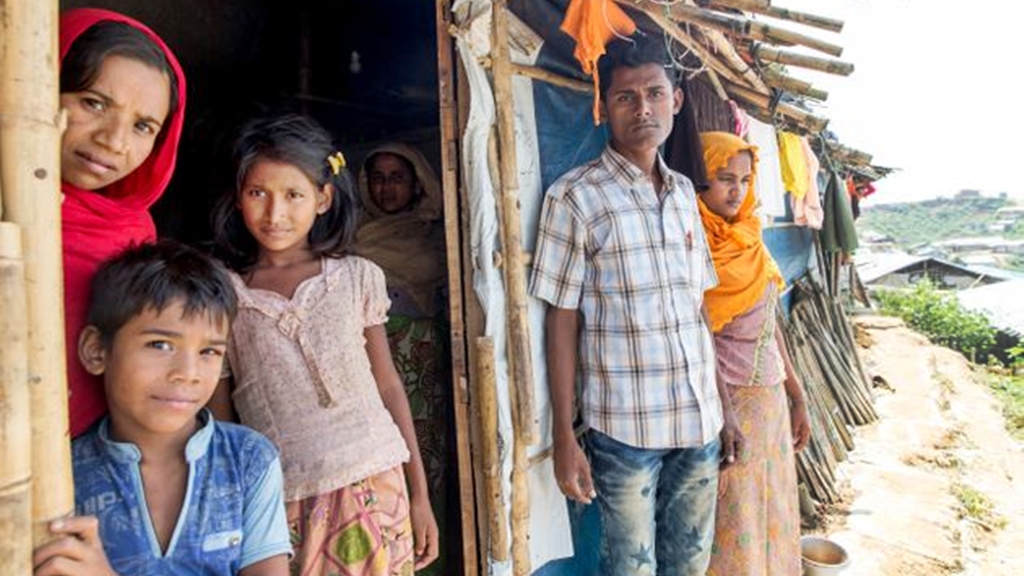
Rohingya Refugees May Have Faded From The Headlines, But Their Struggles Have Not
- 04/03/2019
- 0
We don’t hear about this crisis that much any more – working in the camps myself, I cannot help but feel frustrated
Before arriving in Cox’s Bazar in Bangladesh where more than 900,000 Rohingya refugees from Myanmar live, I had expected a refugee camp. Instead I found a sprawling, makeshift city of sorts with tent homes built amid steep, hilly terrain.
I’m an aid worker with the organization CARE. I’ve been responding to humanitarian crises for over 20 years and been to refugee camps in countries like South Sudan and Iraq, but I’ve never seen living conditions like that of the camps in Cox’s Bazar.
I was most struck by how crowded the camps are, spreading along the coastline of a district that was well-known for its beautiful, touristy beaches, but was already very poor and underdeveloped even before the crisis. In a record period, Cox’s Bazar became the world’s highest populated, densest refugee camp on earth.
Hills that accommodate more than 200,000 families are small but steep. The only way to reach them is by climbing, using hands and feet. Just this week, the first storm this season has unexpectedly hit the area. Strong winds caused damage in many camps. Some rooftops were blown off, and some fragile sheds collapsed. Women are particularly vulnerable as many bathrooms have been partly or entirely destroyed.
These people have lost so much already and risked their lives to be here. They suffer from trauma and different psychological issues, making their situation particularly fragile and increasing their need for special care. Yet, they keep enduring one tragedy after another.
Around 80% of the population is women and children. They traveled, sometimes on foot, for long weeks to reach safety. One woman told me she did not have enough to feed her baby every day. I noticed that she did not have a baby with her. She painfully explained why: “We walked for 25 days. How long do you think a baby can survive only on water and very little rice?”
In my conversations with women, they all said that they miss home and wish to go back one day, because a refugee camp, no matter how well prepared it can be, is never home. Yet, not one woman told me she was eager or ready to go home. When they heard a few months ago of discussions about being sent back to Myanmar they were frightened. “I could not sleep for days,” one woman told me. “We would surely be killed once we are back,” another said.
When I talk to distressed women and girls in a state of crisis, and ask them about their needs, I often expect them to demand firewood, menstrual hygiene, or maternal health care. But what those women demanded was different. They were talking about proper burial for their lost ones, and about accountability in addressing the cause of this conflict. When talking about the future, all they were wishing for was education for their children.
But to bring these women’s wishes closer to reality, we cannot afford to have the world’s attention steered away or faded.
In August 2017 when the big refugee influx from Myanmar into Bangladesh occurred, the media coverage was massive. However, we don’t hear about this crisis that much any more. Although the headlines have vanished, the needs have not at all.
Due to the unprecedented magnitude of the Rohingya crisis, there are many organisations responding. Bangladesh is a country that has very strong, national civil society organisations. There are about 145 agencies in Cox’s Bazar helping Myanmar refugees. CARE has been on the frontline of the response almost since day one providing shelter, water and sanitation, and training local agencies’ staff. CARE places a special focus on women and girls whom we provide sexual and reproductive health support.
Although I am thankful for all the support the international community has given to the affected populations by this crisis, I cannot help but feel frustrated as the world’s patience and attention span are limited. Yes, there are too many emergencies competing for attention and support worldwide. The number of people outside their homes is more than it has ever been, even more than post-World War two. Moreover, over 800million people go to bed hungry every night. That is one in every nine people on the planet. Yet, just by looking at the sheer numbers of Rohingya refugees, and how the international community talks about their commitment to women and children, we need that commitment to be demonstrated.
Deepmala Mahla is CARE’s regional director for the Asia region






